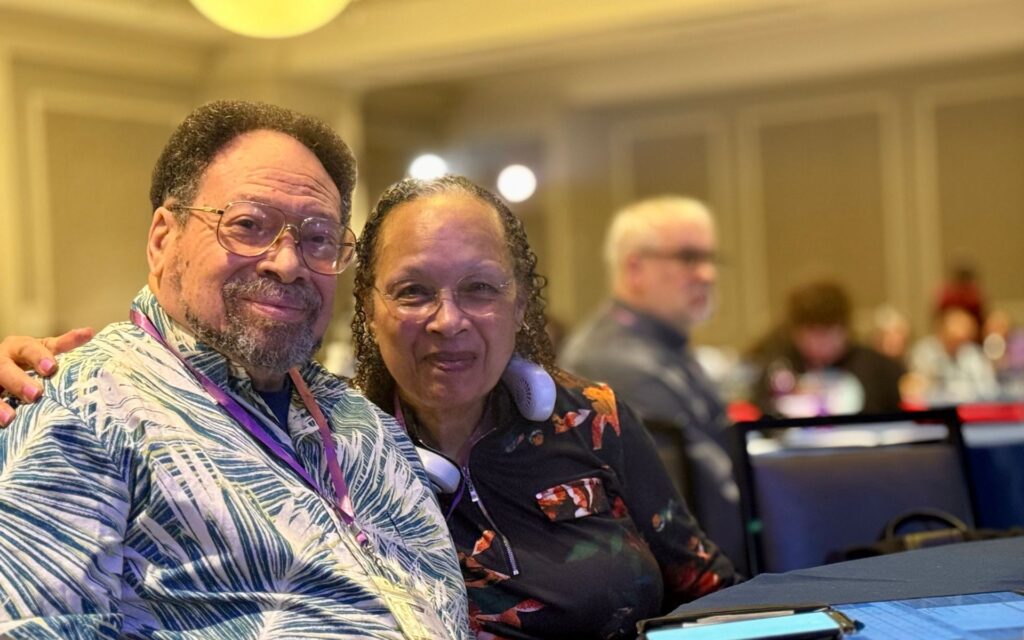I had a conversation with a woman at an event several weeks ago that really stood out to me. She and her husband stopped by my table and kindly listened while I shared about our Movement Disorders Ecosystem model and our resources. I picked up a copy of our “Care Partner Self-Assessment” and held it out to her, noting the immense burden that’s placed on care partners.
“It can help you identify if you need support and which areas you might want to focus on when reaching out to your network for help,” I said.
The woman smiled, took the handout, and with a nod to her husband replied, “Of course, so I can make sure I can keep taking care of him.”
While I understand precisely where that logic comes from, it still makes me a little sad to see it in our care partners, and I was quick to remind her: “So you also get the care you need. Your quality-of-life matters, too!” She seemed slightly taken aback for a moment, then her smile warmed and reached her eyes, and she nodded.
This is the type of misunderstanding that makes care partner specific resources so essential. It’s why PMD Alliance prioritizes recurring events for care partners to converse with their peers and find validation. When only people with Parkinson’s or another movement disorder are centered in a support space, it can easily result in care partners feeling a bit like an accessory, which can make recognizing and voicing their own struggles all the more difficult.
When we rebuilt our website, we incorporated the term “Lived Experience” to better interweave the care partner experience into the fabric of our new language. No matter whether someone experienced the symptoms in their body, care partners and family members all have lived experience with a movement disorder.
But under that umbrella, we still have a page dedicated entirely to care partner resources, like our “Asking for Help” guide, a great complement to the assessment above. It helps care partners plan ahead to identify support they might need in the future and ask for it. And the Resource Library has a full list of printable care partner resources in the dropdown menu.
Because care partners deserve to have their struggle recognized and to find tools that address the challenges they’re facing. And this National Family Caregivers Month, my message to them is: Your quality-of-life matters. You matter. And there’s a place for you here.


